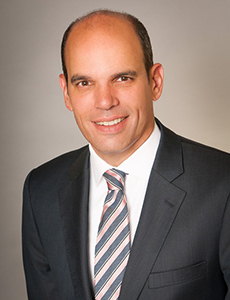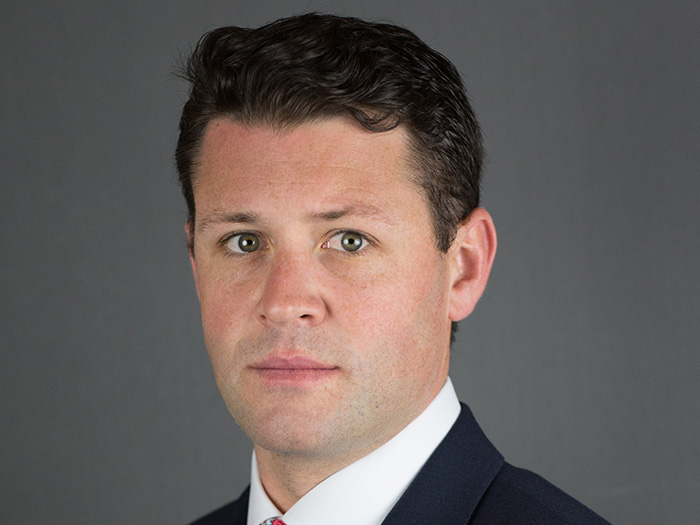Sponsored Content by QBE
It’s Not Just About Doing Good. Impact Investments are Now Critical for Long-Term Success.

Investing in projects that produce social, environmental and economic sustainability is critical to long term success for communities and companies alike.
In the past, having a corporate sustainability program would certainly boost a company’s reputation. Local residents would appreciate the investment in their community; employees take pride in working for an organization that cares about more than profits; investors see commitment to sustainability as a harbinger of long-term success.
But sustainability efforts are no longer just about altruism or even civic responsibility — they are becoming integral to business strategy.
“Investing in our own communities was one way to do good in the world – but it wasn’t part of the business. That’s now shifting,” said Jose Ramon Gonzalez, Chief Legal Officer, QBE North America. There’s a growing realization that in order to be a competitive player, you need to focus on sustainability as an integral part of your business strategy because sustainability is critical to our long-term economic growth and development.”
From a talent recruitment perspective, insurance companies that prioritize sustainability are more likely to appeal to Millennials and Gen Z workers who view businesses as agents for change and want to align themselves with companies that are socially responsible. The same applies to potential clients. Brokers are increasingly asking carriers what their sustainability efforts look like, because risk managers want to work with partners who are good corporate citizens.
“We’re expecting our clients to ask about our sustainability efforts. At the end of the day, it’s about doing good for our community, but it’s also becoming a financial imperative,” Gonzalez said.
At QBE, investment in sustainability is not new, but it is expanding. “Giving back to our communities has been an extension of our mission from the beginning,” Gonzalez said. “Promoting sustainability is in our DNA.”
“Investing in our own communities was one way to do good in the world – but it wasn’t part of the business. That’s now shifting,”
— Jose Ramon Gonzalez, Chief Legal Officer, QBE North America
Putting Premiums to Work for a Higher Cause

Jose Ramon Gonzalez, Chief Legal Officer, QBE North America
As cornerstones of a successful economy, insurance companies increasingly will have an obligation to invest clients’ premiums dollars in line with shared sustainability values and goals. QBE has been on the forefront of this trend, making impact investments through its Premiums4Good initiative since 2014.
“A few years ago, we committed to invest a portion of our customers’ premiums into impact investments, investments that not only produce an appropriate risk adjusted rate of return — fulfilling our fiduciary obligation to our shareholders — but also have an added social or environmental benefit,” said Harpreet Mann, Vice President, QBE North America.
“That was the beginning of our innovative Premiums4Good program. Now we can demonstrate to our policyholders how their premium dollars are being used to foster positive change in our shared communities.”
According to the Global Impact Investing Network’s 2018 Impact Investor Survey, interest in impact investments is growing. Half of respondents had made their first impact investment within the previous decade, indicating the rate at which investors are shifting focus to organizations and programs that drive environmental, social and economic resiliency.
Through investments like social impact bonds and green bonds, QBE’s investment team looks for opportunities that can produce measurable outcomes.
“A social impact bond (also known as Pay for Success) investment is tied to certain metrics being achieved. For example, in our first social impact bond investment with the State of Connecticut, the goal is that, by helping to reduce parental substance abuse and keeping families together, the State of Connecticut would realize a decrease in the number of children entering foster care. When agreed-upon metrics are achieved as determined by an independent evaluator, the investors are repaid their capital and a modest return,” Mann said.
Through such private-public partnerships, every dollar is tied to an outcome, and the parties involved are held accountable to meeting specific goals. This accountability component ensures investments are producing the result they promise.
Recently, QBE has made a global commitment through its innovative Premiums4Good program is to invest $100 million in local currency across each of QBE’s divisions, including North America, Europe and Australia.
“We currently have $440 million investment globally generating social or environmental impacts. Our ambition is to have $1 billion invested by 2021,” Gonzalez said.
The company’s long-term commitment to sustainability is also evidenced by its alignment with the United Nations Sustainable Development Goals — “in particular, no poverty, gender equality, climate action, sustainable cities and communities, and decent work and economic growth,” Gonzalez said.
In 2014, QBE also became a signatory of the UN Principles for Responsible Investment, which provides a global standard for signatories to incorporate environmental, social, and governance factors into their investment strategy.
A New Collaboration Encourages Local Entities to Become Change-Makers

Harpreet Mann, Vice President, QBE North America
This year, QBE announced a new partnership that will elevate its sustainability mission and broaden its reach. Together with Ashoka, a global network of “social entrepreneurs,” it hopes to empower local for-profit organizations to create their own changes in their communities to drive urban resilience.
“Social entrepreneurs have a specific focus on scaling solutions for education, public health, environmental conservation, or any number of social sustainability issues,” said Tim Scheu, Director of Global Partnership Management at Ashoka. “Over the past decade, we’ve been thinking about how we can leverage that network to inspire others to become change-makers in their communities. Then QBE came to us with the idea of promoting urban resilience.”
“Because of their concentrated population, cities are great places to start catalyzing people to find solutions to the big social, economic and environmental problems we face today,” Gonzalez said.
In cities, those solutions could include improved access to sustainable and healthy food, clean water, more resilient infrastructure, greater diversity in the workforce and within the industries participating in the city’s economic ecosystem, among many others.
“Insurance is all about mitigating risk, and we always want our customers to be more resilient against physical, social and economic risks,” Mann said.
It Begins with Empowering Employees
In addition to improving clients’ communities, commitment to sustainability also benefits the very people who conceive and drive these efforts – QBE’s employees.
“Our divisional groups focused on sustainability are largely composed of volunteers, and demonstrates how our commitment to sustainability resonates with, and engages, our employees,” Mann said.
Scheu echoed the importance of employee buy-in: “From Ashoka’s standpoint, what’s really exciting about working with firms like QBE is that they make so much investment in their human capital — the talent that is walking in their halls. When you’re able to partner with an institution like that, you can see how the social responsibility mission becomes woven into the standard business motivations.”
Every year since 2015, QBE has published a sustainability report detailing its work and progress made. In addition to creating transparency, the reports often help to generate new ideas and push them forward.
To read more about QBE North America’s sustainability investments and initiatives, visit https://www.qbe.com/us/about-qbe.
This article was produced by the R&I Brand Studio, a unit of the advertising department of Risk & Insurance, in collaboration with QBE North America. The editorial staff of Risk & Insurance had no role in its preparation.










